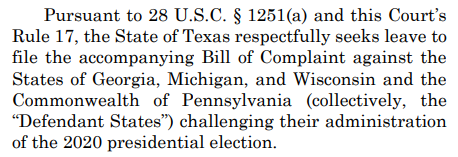
Small problem. Even in your “fediverse” model, so long as I can post somewhere I don’t myself own, you are either (a) accepting someone else is liable for what I wrote, or (b) need the equivalent of 230.
If I can’t what you’ve created is email. If I *can*, you need 230.
1/
If I can’t what you’ve created is email. If I *can*, you need 230.
1/
https://twitter.com/aral/status/1335504195890372608
Whether people *should* want the interconnectivity of “publicly posting on other people’s walls/timelines/replies”, clearly people *do* want it.
The vagueness of “interconnection of sovereign spaces owned and controlled by individuals” only muddies the waters.
2/
The vagueness of “interconnection of sovereign spaces owned and controlled by individuals” only muddies the waters.
2/
If your vision is “twitter or Facebook but everyone owns their own page and no 230”, each individual “client” would face incredible liability.
If your vision is that people wouldn’t be able to freely post on other people’s pages, you haven’t made an FB competitor.
3/
If your vision is that people wouldn’t be able to freely post on other people’s pages, you haven’t made an FB competitor.
3/
There is no way to make what Twitter or Facebook actually *is* without 230 protections. You can decide people shouldn’t want what they are, but people demonstrably do. Regardless of whether it’s individual user sites or Facebook pages, 230 is a prerequisite.
4/4
4/4
• • •
Missing some Tweet in this thread? You can try to
force a refresh










